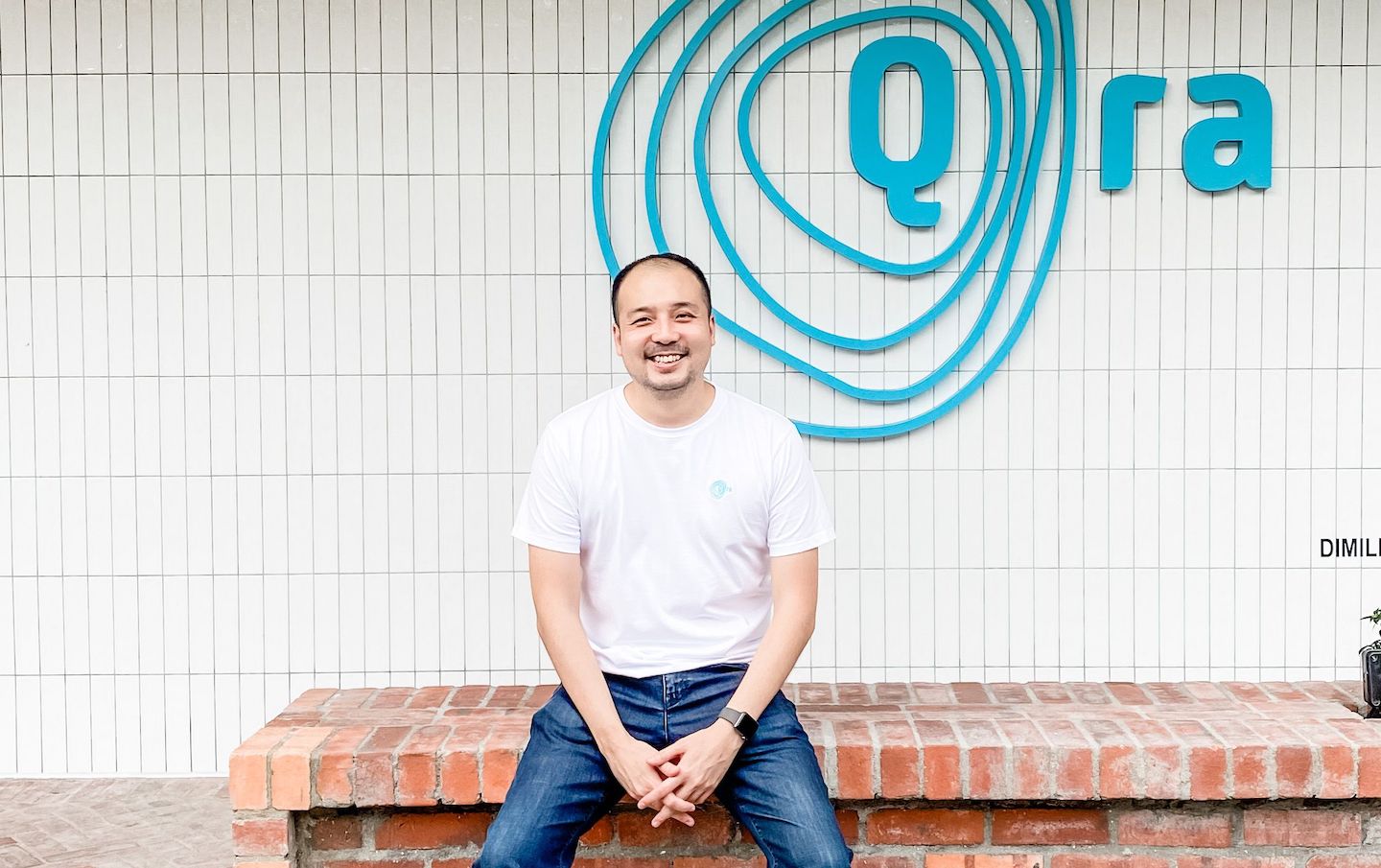
Founder of Qra David Tseng (All photos: Qra)
The present-day consumer landscape is remarkably different from that of three decades ago, and not least due to the Covid-19 pandemic that has decimated the retail scene. Material goods sitting in stores once defined the market, but people now expect more. The wealthy are seeking out luxurious and exclusive experiences while the global middle class are looking for goods that reflect their personal values — even as much of their spending has been limited by wage stagnation. And nowhere is this trend more evident than in supermarkets — ubiquitous retail institutions that are the perfect metaphor for the changes in standard of living and expectations of service and luxury.
Those of us who remember shopping for essentials in the 1980s have the best sense of how much grocery stores have evolved. Even the better ones were not very large, often not well lit, limited in the variety of goods they stocked (especially fresh produce), and lacking the prepared foods we see quite often. Shopping marts today, by contrast, are marvels of higher quality and expanded variety, especially in major cities like Kuala Lumpur and Penang. The expansion of variety in the typical grocery store has dramatically increased the subjective well-being of consumers in ways that macroeconomic measures such as GDP cannot capture.
When Ben’s Independent Grocer (BIG) opened in 2011, it introduced Malaysians to a novel way of shopping. Its brightly lit stores had a more instinctive floor plan that did not necessarily adhere to what researchers said was the ideal way to lay out the space. But the magic was in the many new products on the shelves — candies, chips and cheeses Malaysians previously had to shop abroad for, organic pasta and baby food, imported chocolates and exotic ingredients like oysters and caviar. Everything was carefully curated to turn a normal trip for essentials into a visit to a foodie theme park. David Tseng is a co-founder of BIG, along with Ben Yong, and was its executive director for two years after its takeover by Village Grocer Holdings in 2017. Two years on, he has launched KL’s latest grocery store, Qra, in the lush setting of Selangor Properties’ recently redeveloped The Stories of Taman Tunku.
2._live_well.jpg
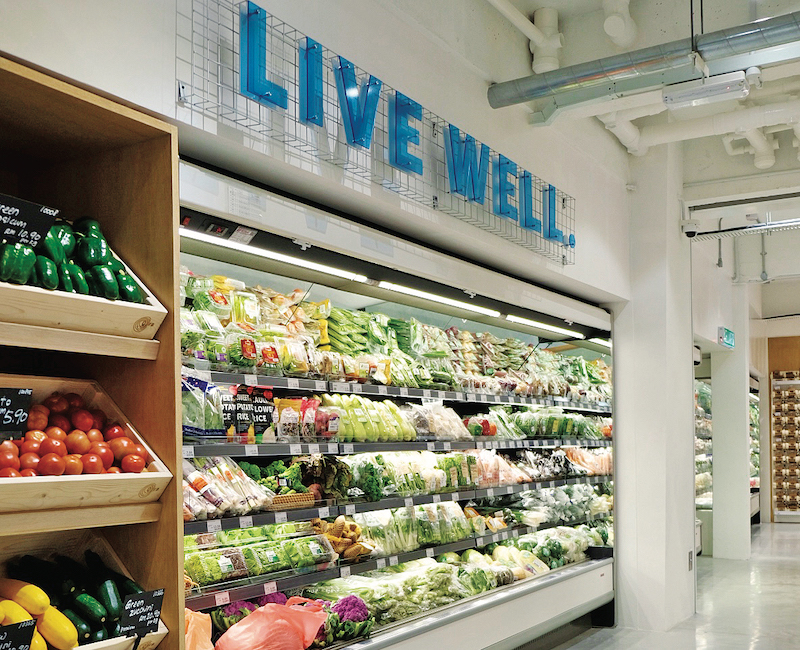
“We are a community neighbourhood store curating fresh, healthy and quality merchandise, as well as great service, in a convenient setting,” Tseng begins. “Qra is a play on the word ‘curate’. We wanted a word that really represented us, and one that would cause no confusion with any other brand. Qra, we thought was fun, could be a talking point, and is unique.”
When news of the second Movement Control Order broke, Tseng was forced to bring forward Qra’s opening day to Jan 11, and it quickly became a hit on Instagram, thanks to socmed-savvy shoppers eager to tell their legion of followers about the super-cool new supermarket in town. Groceries are the only big thing we are shopping for now, so the opening of a new store is definitely a big deal.
A new start
“Qra is a health and wellness-based store with a green concept,” says Tseng. “We are centred on providing a neighbourhood shopping experience, which means adjusting to what the surrounding community needs while offering something different from other supermarkets. Our [retail] buyers go through stringent processes to understand what goes into products — it’s not just the value of the brand, but what it stands for. Other stores may have a selection of 20 kinds of strawberry jams, but in the five we sell are the values important to us — healthy, sustainable production, well-made and perhaps even artisanal. It’s about providing consumers with a better alternative.”
This is quite a niche he is tapping into. In recent times, consumers are increasingly spurning mass-produced goods in favour of those rooted in a sense of place. The demand for such products represents a return to local, individualised production and services where transparency regarding practices and points of origin function as key measures of value. People want things that transcend utility and suggest personal values and cultural capital. Fair trade, direct trade, humanely treated animals — these contribute intangible value to products in today’s consumer economy, making these qualities an important part of marketing strategies.
groceries_aisle_1.jpg
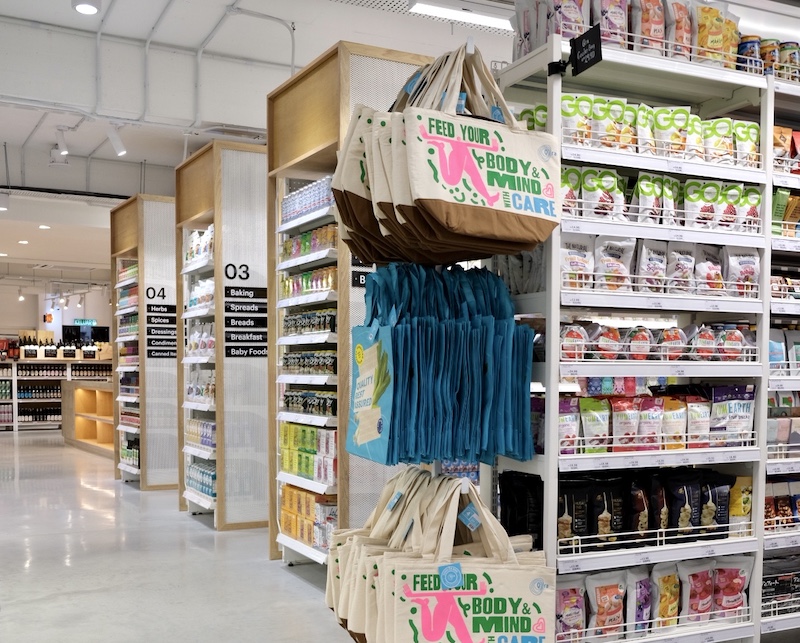
“The focus for us are good ingredients, good quality products, and there is an emphasis on locally made items — we want to profile Malaysian brands that bring out the flavours that define our cuisine,” says Tseng. “A lot more brands have come out during the pandemic, as a matter of fact.”
The present store in Taman Tunku is the first in an area that has been grossly underserved, which, until recently, had only had a bank, a restaurant and a bar. Kenny Hills Bakers brought a fresh slew of consumers to the area and revived this quaint neighbourhood quite a bit. With the regeneration by Selangor Properties, Taman Tunku is slated to become a community enclave like no other, and will grow to include health and wellness facilities, F&B outlets as well as necessities like groceries — which is where Qra comes in. “We saw this as the perfect spot to launch the brand. It has a great customer base and suits our model really well. It’s a full shopping experience in an intimate, compact environment.”
A curated experience
As Qra is within 10km from where I live, I scheduled a visit on a weekend morning. Parking was aplenty as the standard operating procedure only allows 30 shoppers in the store at any one time. As I took my temperature and scanned the MySejahtera code, a trolley was being sanitised for me. The smell of baking bread and warm coffee were a welcome hit for my senses right as I walked in — there is adequate research supporting such olfactory marketing on our consumption behaviours, that is, it makes us buy more. A fully operational café served coffee and loaves of bread — sourdough, baguettes as well as the more ordinary white sandwich variety. A small but fairly complete collection of locally sourced fresh produce was also a great opening act, especially since I am partial to vegetables that do not have to incur air miles to arrive on my plate.
The aisles were indeed narrow but not unnavigable, with signboards demarcating the various product categories. We ended up spending a lot of time in the snacks and candy aisle — with an eight-year-old at home full-time, there is a lot of snacking going on — as well as the condiments section to pick up unusual ingredients to fuel all the extra cooking that is going on at home.
coffee_bar.jpg
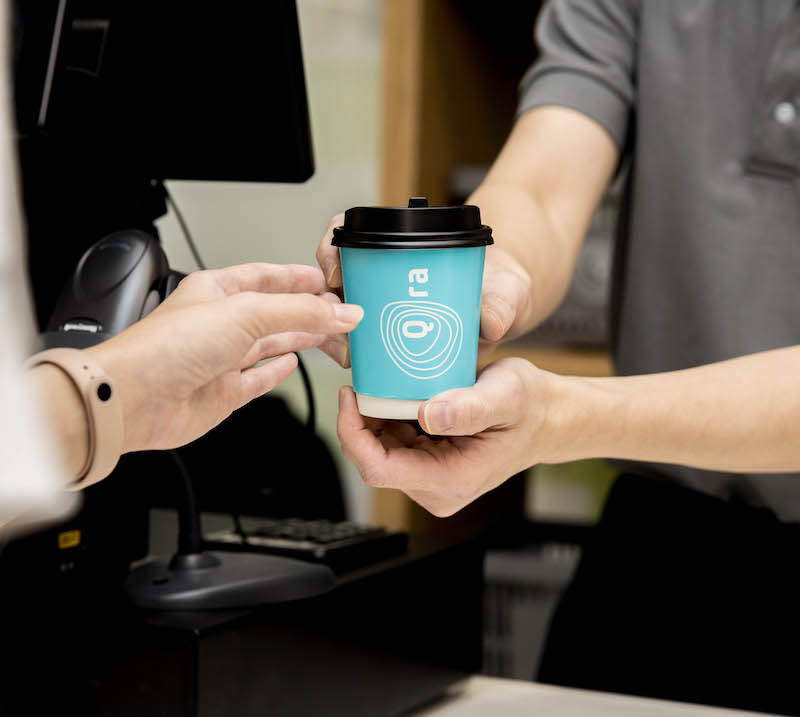
There is a great mix of local and international brands: Rice from social enterprise Langit, spreads and sauces from Sauce Lab and ice cream from IDC KL are brilliant made-in-Malaysia finds, while imported labels worth the fuss include Banza Pasta (it’s made from chickpea, not wheat) and natural foods (such amazing granolas) brand Purely Elizabeth. Even the humble instant noodles are elevated at Qra — you will not find your run-of-mill variety here. I picked up a meat-free instant ramen from Japan that made for a quick and delicious dinner that night.
Indeed, the vegan and meat-free movement has quite a home at Qra — you can find jerky from Primal Spirits Foods, burger patties and luncheon meat from OmniMeat as well as frozen meals from Rawsome. If you do not feel like cooking, there are also ready-to-eat soups and sandwiches right at the check-out counter, and a good number of these are vegan. This is a welcome change for vegetarians, who often do not have options when it comes to this category.
We made a quick pit stop for lentils and nuts at the bulk section and nut butters — Qra blends its own — before arriving at the wine and non-halal meat section. The racks of vino stock a substantial enough number of brands to provide shoppers variety, with both unusual bottles as well as the more common varietals. Staff members are quite helpful if you do not know what you want, and give shoppers who know their way around enough space to shop in comfort. This section has its own checkout counter. The main part of the store has a self-checkout too. There are no plastic bags; if you do not have your own, you can purchase paper bags for RM1 or larger reusable shopping totes.
Our trolley was quite full at the end of our trip, but I cannot say they were all essentials — no one needs three kinds of tomato spread or posh instant ramen, but they sure are nice to have. However, I did notice a few product categories that remain quite under-represented, such as personal care items, household cleaning products and pet food and accessories. Because the footprint of the Taman Tunku store is quite small, Tseng says the focus is more on food. A subsequent store in Damansara Heights will be larger and feature a suitably broader inventory. “The Taman Tunku store is more of a teaser, or introduction to the full brand offering,” he adds.
Shopping for the future
Interestingly, Tseng’s father used to manage the Cold Storage in Jaya Shopping Centre in Petaling Jaya — to give you context, this was when Kathy’s Toys was still open — and he grew up with an instinctive understanding of the industry. When he co-founded BIG, he also brought to the table his experience shopping in grocery stores in Melbourne, where he spent many years. “It was a steep learning curve for us at BiG and a great learning experience. The model was very successful and the theatre of grocery shopping was a huge hit,” he muses. “The industry has evolved and Malaysians are very well travelled, so they have higher expectations. Millennials and Gen Z are also a factor — they don’t shop like their parents, and they are a growing consumer block these days.”
Products in a grocery store are commodities and the way that customers differentiate between where to go is by their experiences. The grocery store of the future will be much more focused on experience rather than just things. Customers will not choose the store because of the products; they will choose it because it offers a convenient or beneficial experience. It will be a place where customers come to learn about their food and experience it in new ways instead of just buying it. That means stores will offer things like cooking classes and wine tastings, which Tseng says they will start doing once the MCO is over and restrictions are slightly relaxed.
qra_shopping_basket-2.jpg
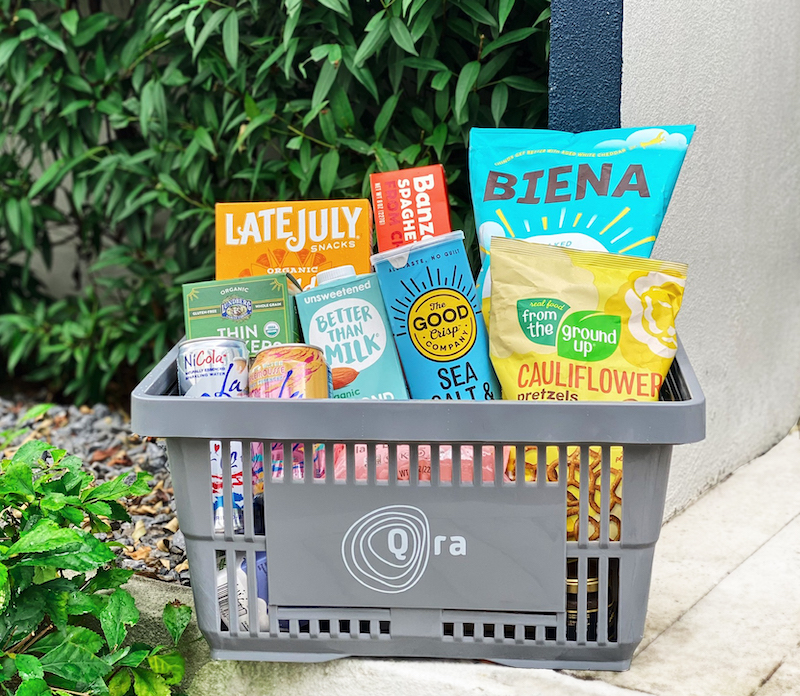
The company is very new but Tseng already has plans in place. In April, he will open the store in Damansara Heights. A third outlet is slated for the second half of the year. “Our model is a small-format store, so our growth is very much anchored on that — we have to stay true to what we are and what we stand for. We want to be in neighbourhoods where the brand will be a good fit, that’s right for us,” he says. “When our e-commerce comes into play in a few months, it will complement the in-store experience.”
In discussing the future, Tseng and I talk about how jarring 2020 was on personal, community, societal and global levels. Every industry around the globe was disrupted. With regards to food, Covid-19 accelerated inevitable trends on how we eat. In anticipating the future, there are several trends that stand out — the acceleration of grocery e-commerce, changing demographics, an openness to plant-centric eating and stores with smaller footprints that curate their products carefully.
Brands and stores that lean in — both the incumbent and challenger — will be well positioned to grow into the next decade. Agility is key, says Tseng. “With innovation, you must have tolerance for mistakes. I always encourage innovation within the team. There needs to be a clear direction and a team that believes in it as much as I do. We are a new set-up and quite small, which allows us to be agile and nimble. The industry has changed a lot and will continue to do so … we need to be flexible and open-minded to manage the challenges that come. Grocery shopping itself is a constant — we need to continually adapt the platforms on which it is done.”
We live in a golden age of grocery shopping and food choices, and the future only looks more delicious. Interesting times to come, for sure.
This article first appeared on Feb 8, 2021 in The Edge Malaysia.


